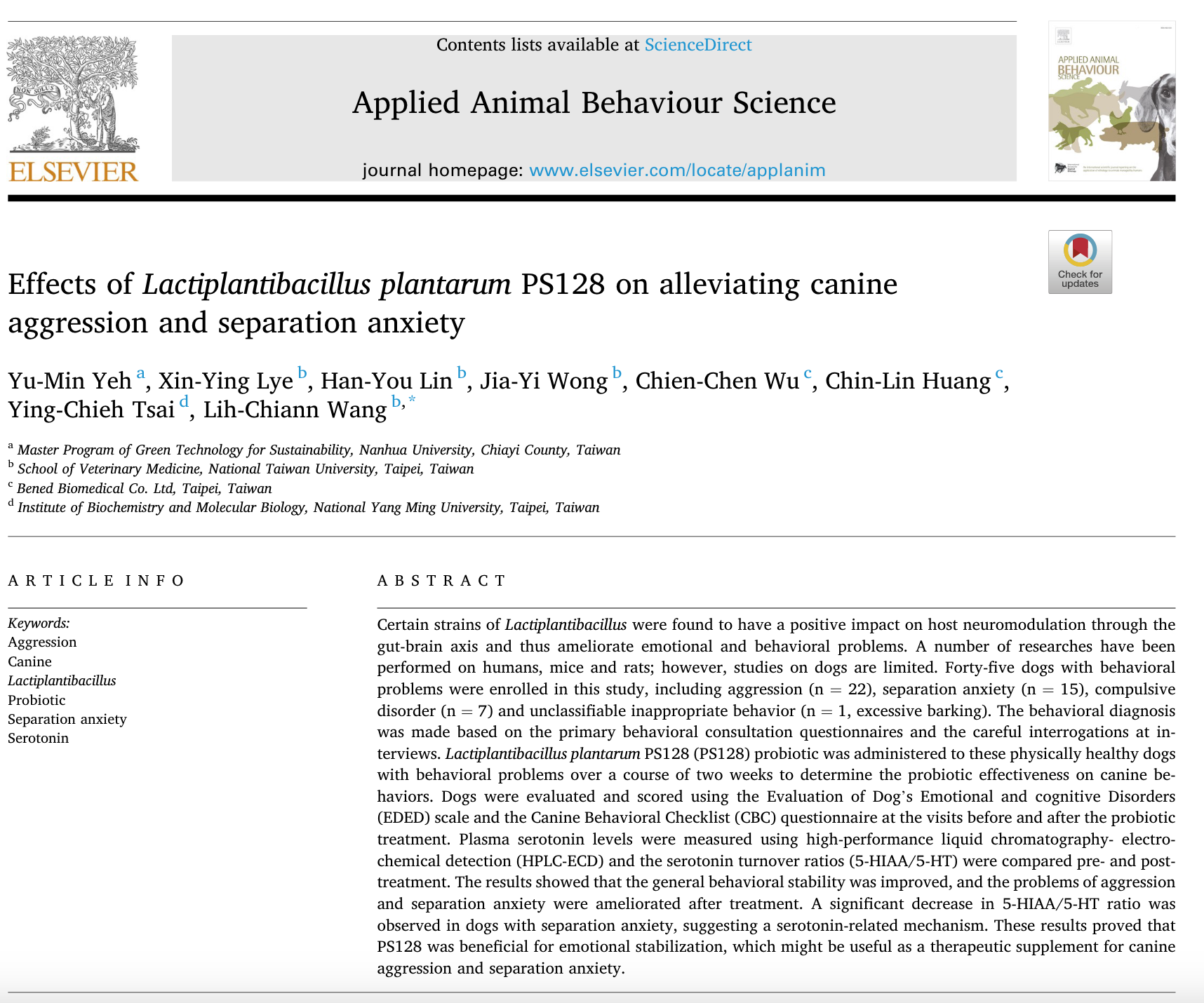Can Probiotics Help With Aggression and Separation Anxiety in Dogs?
Scientists are now beginning to understand the role of the gut-brain connection in mood, behavior, and immunity in humans and animals. As we learn more about the importance of a healthy gut biome on our brain function, medications, supplements, lifestyle, and food choices that could affect our gut health are all being examined for their potential to promote mental health. This article demonstrates the positive impact of the administration of a particular strain of probiotics on dogs with behavior problems.
As someone who has a strong background in scientific research, part of my goal as an applied animal behaviorist is to use that strength to communicate relevant findings to the clients I am working with. Any good dog trainer or behavior consultant should be basing their techniques and opinions on peer-reviewed research.
A study published in the journal Applied Animal Behaviour Science has found that a probiotic called Lactiplantibacillus plantarum PS128 may be effective in reducing aggression and separation anxiety in dogs.
The study involved 45 dogs with a history of behavior concerns including aggression or separation anxiety. The dogs were randomly assigned to receive either a probiotic supplement or a placebo. After 14 days, the dogs that received the probiotic supplement showed significant improvements in their behavior, including reduced aggression, reduced anxiety, and improved sociability.
The researchers believe that the probiotic may have helped to improve the dogs' emotional state by altering the bacteria in their gut. The gut microbiota, or gut bacteria, is thought to play an important role in regulating mood and behavior.
This study is the first to show that probiotics may be effective in treating aggression and separation anxiety in dogs. However, more research is needed to confirm these findings.
If you are considering using probiotics to treat your dog's aggression or separation anxiety, it is important to talk to your veterinarian first. Probiotics are not a cure-all, and they may not be effective for all dogs.
In addition to probiotics, there are other things you can do to help reduce your dog's aggression or separation anxiety. These include:
Providing your dog with plenty of exercise and mental stimulation
Creating a calm and predictable environment
Providing your dog time to decompress after stressful events
Seeking professional help from a certified animal behaviorist, behavior consultant, or trainer
Yeh, Y.-M., Lye, X.-Y., Lin, H.-Y., Wong, J.-Y., Wu, C.-C., Huang, C.-L., Tsai, Y.-C., & Wang, L.-C. (2022). Effects of Lactiplantibacillus plantarum PS128 on alleviating canine aggression and separation anxiety. Applied Animal Behaviour Science, 247, 105569. https://doi.org/10.1016/j.applanim.2022.105569


